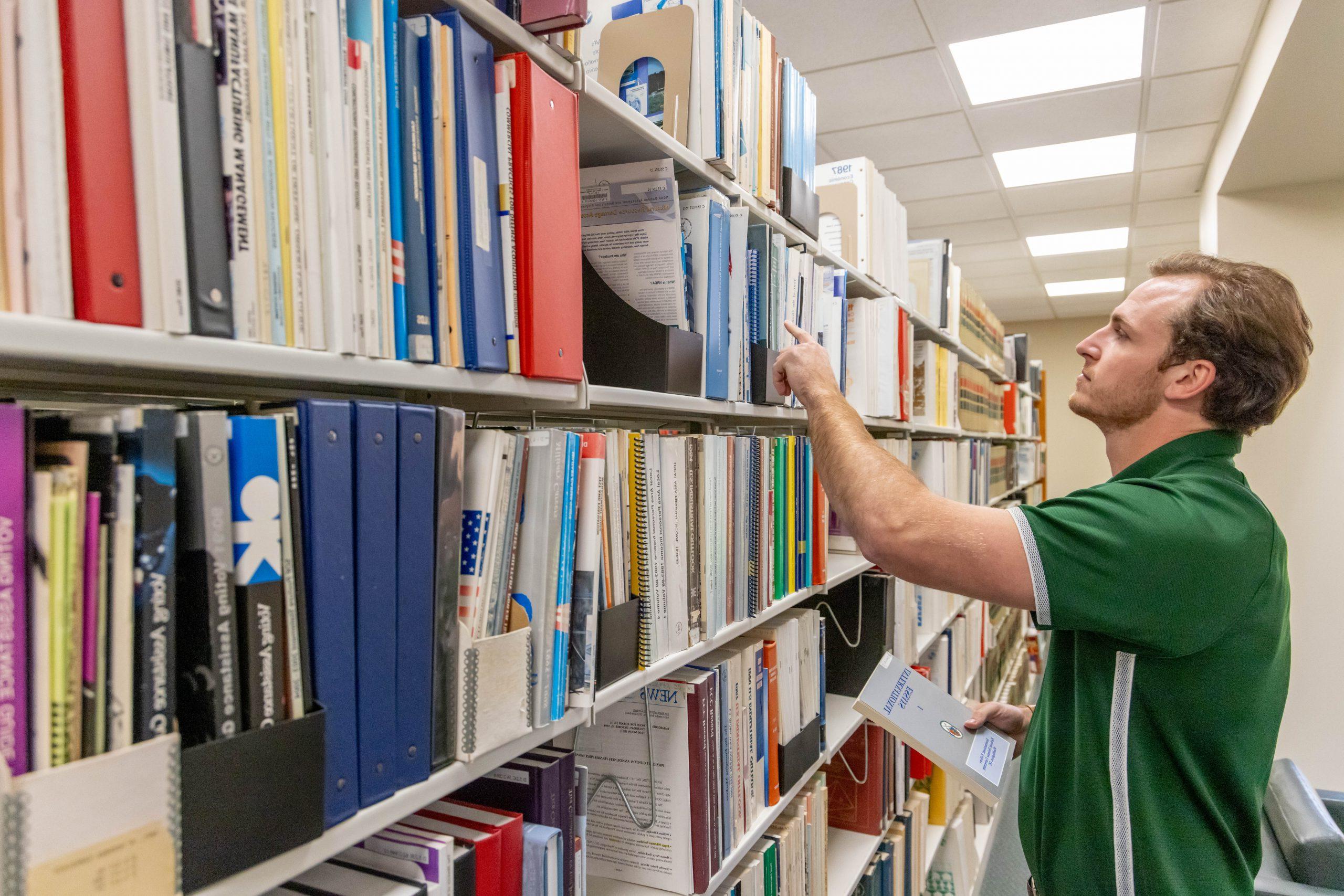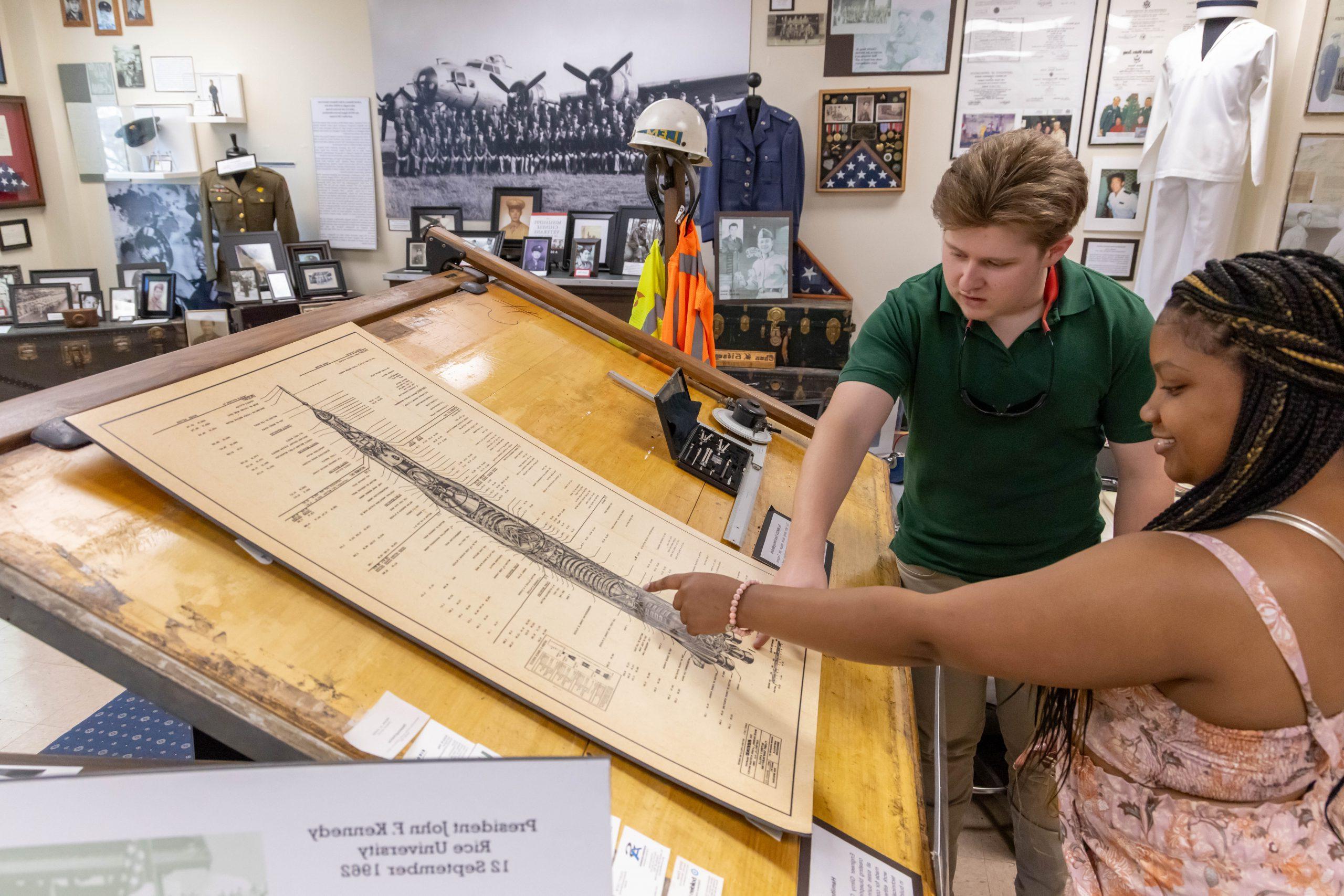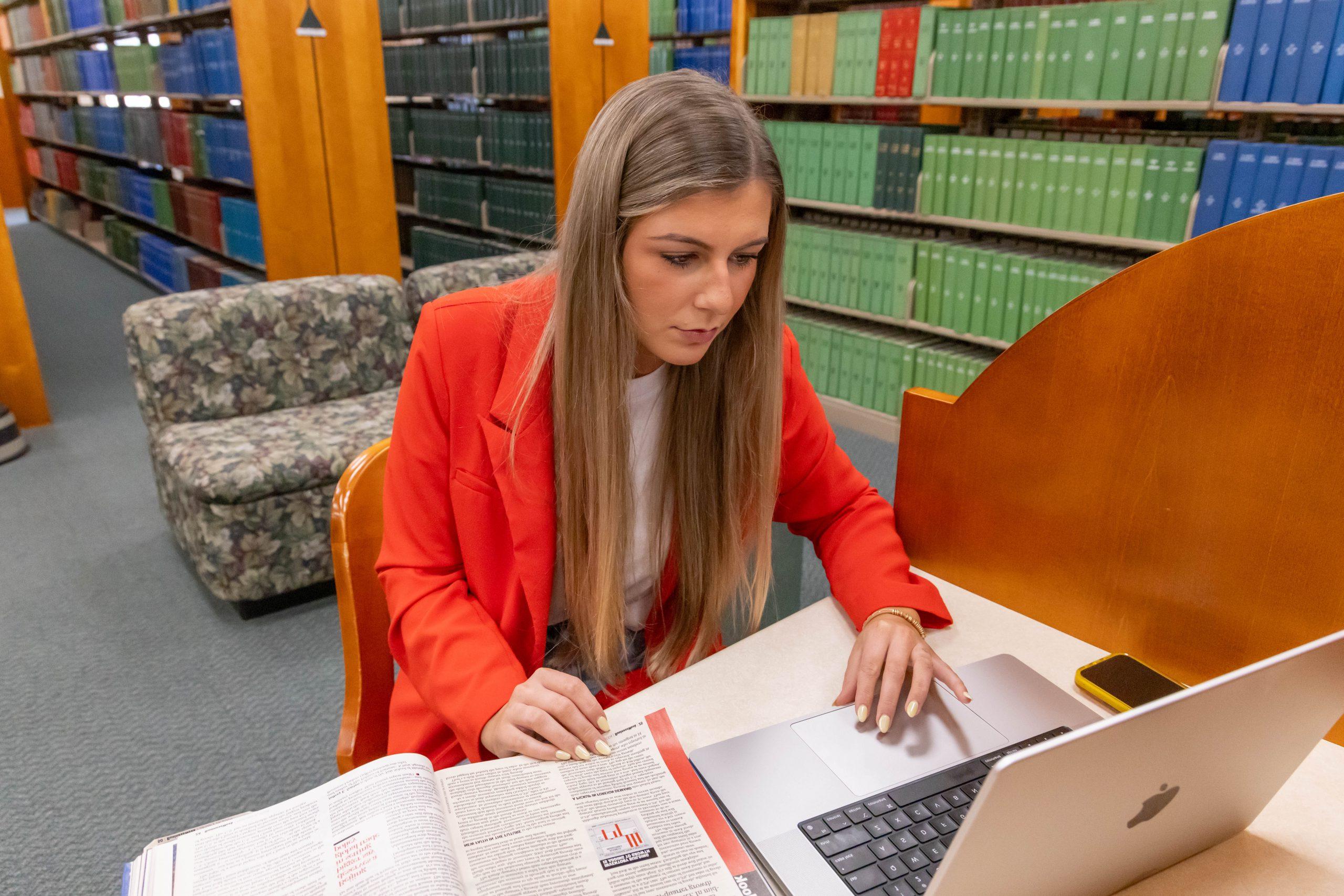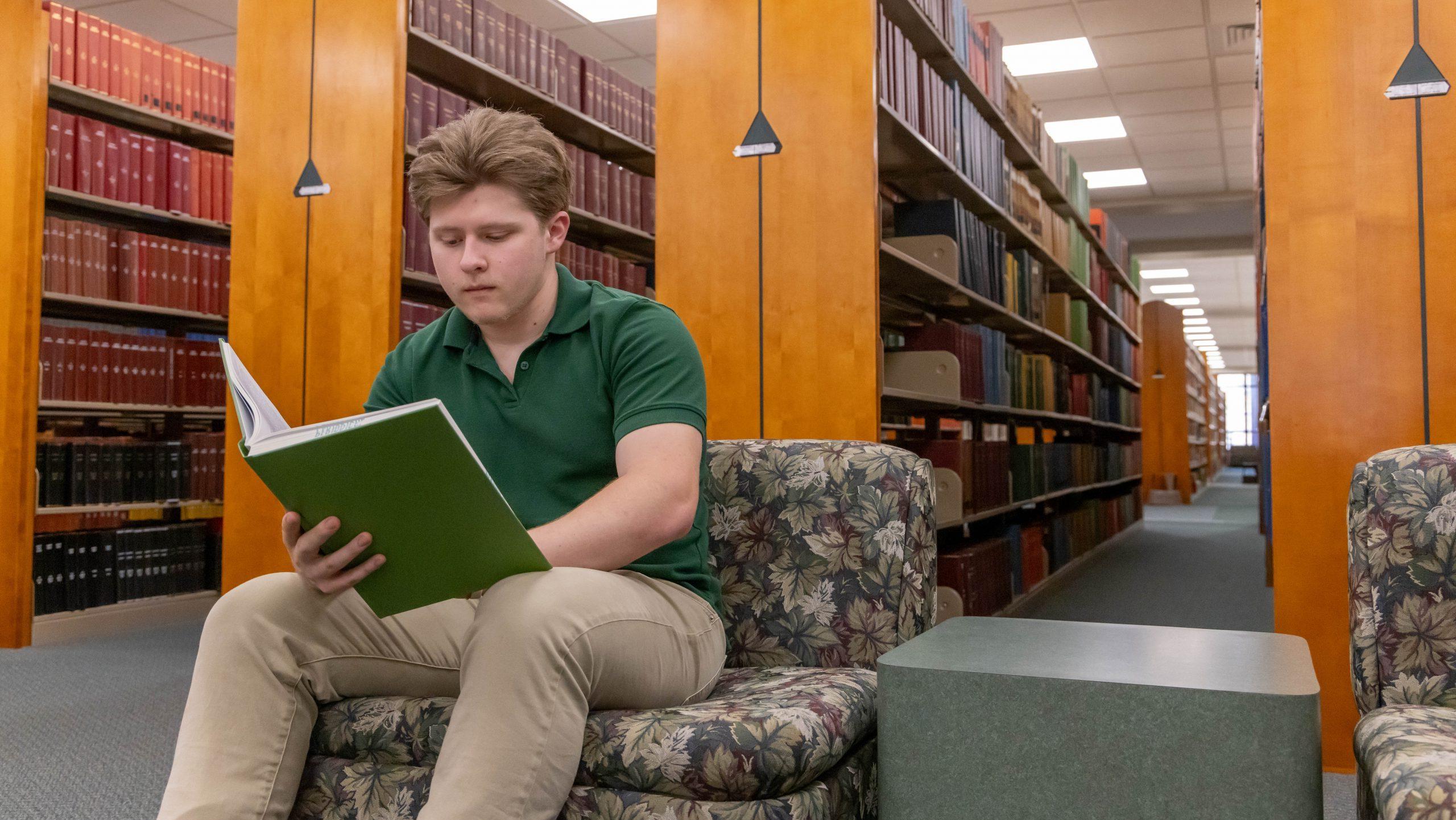The Master of Arts in Liberal Studies (MALS) degree program promotes an interdisciplinary approach to graduate education by offering a diverse set of humanities and social science concentrations. This program is designed for students who want to pursue advanced understanding of the nature of societal values and ideals that influence the human condition in the context of past and present human behavior and institutions. Students are exposed to perspectives that are useful for solving real problems while deciphering major philosophical, cultural, and social concepts about the world around us.
MALS creates an open, engaging intellectual space for full-time and part-time students from diverse backgrounds and stages of their professional lives. The Division of Social Sciences and History‘s highly qualified and diverse group of faculty and a vibrant, flexible curriculum enable students to think and analyze information on a deeper and broader level.
Online
Credit Hours
Unique Concentrations
Why Get a Liberal Studies Master’s Degree
Online at DSU?
The Liberal Studies master’s program at DSU is extremely flexible and offers a unique combination of courses for students interested in a variety of fields. Each concentration offers room for plenty of elective courses within the main discipline and outside of the discipline. We enable students to sharpen their analytical, critical thinking, writing, and research skills along with providing a strong foundation in content knowledge through our various disciplines. In this increasingly mobile and global era when people change careers numerous times, the development of these core, transferable skills and knowledge is vital and valuable.
- Applications accepted year-round
- Flexible enrollment
- Personal advising
- Diverse concentrations
- Optional thesis
- An interdisciplinary approach
- Open and engaging intellectual topics
- Develops intellectual skills and knowledge
Concentrations in Liberal Studies

Community Development
The Community Development concentration offers students a depth of courses that will strengthen knowledge of the key sociological concepts that are foundational to the field of community development. In addition to taking core courses in sociology and community development, students will take courses in quantitative and qualitative research methods. This concentration is designed for community development practitioners, employees in the public and private sectors, and those seeking to advance to a doctoral program in the social sciences or other fields. Completion of this concentration will enable one to teach sociology at the undergraduate level.

English
The English concentration provides a wide variety of courses in literature, creative writing, and literary methods. Students will be exposed to a diverse array of writers, perspectives, and methods. The concentration is designed for writers of all backgrounds, adult learners, and those seeking to advance to a doctoral program in English or other fields. Completion of this concentration will enable one to teach English at the undergraduate level.

History
The History concentration presents a broad range of courses in U.S. and world history with a special emphasis on the history and culture of the Mississippi Delta and the American South. Students will expand their knowledge of key historical developments and periods while engaging with various forms of historical interpretation, methods, and communication. This concentration is designed for those interested in history at the levels of academic scholarship and public forms of history such as libraries, archives, and museums. It is also targeted toward adult learners and those seeking to advance to a doctoral program in History or other fields. Completion of this concentration will enable one to teach History at the undergraduate level.

Interdisciplinary Studies
The Interdisciplinary Studies concentration allows students, especially adult learners, to construct their own graduate program of study based on their interests and goals. This concentration is not bound by focus to one discipline. Students can use this concentration to venture into as many different disciplines as possible within the 30-hour framework. Interdisciplinary Studies is most beneficial to those seeking a graduate degree to satisfy personal enrichment and/or professional requirements of completing a master’s degree.
What Can I Do with a Master’s Degree in Liberal Studies?
Graduates who earned the Liberal Studies master’s degree have gone on to a wide range of careers. Students in this program have also found the MALS degree to be a valuable degree as they seek further education via law school, doctoral programs, and other forms of graduate study. The skills developed in our program prepares graduates for many academic and professional opportunities either inside or outside of their MALS disciplinary concentrations. Below are some careers a graduate can pursue.
- Academic advisor
- Attorney
- College instructor
- Communications and marketing director
- Data analyst
- Freelance writer
- Journalist
- Librarian
- P-12 teacher
- Prison education coordinator
- Government affairs policy advocate
- Workforce development coordinator

”The MALS program at Delta State has played a pivotal role in my personal and professional growth. As a student, the program challenged me to explore inclusive narratives derived from diverse viewpoints rather than conventional accounts. Most importantly, the program honed my critical thinking and research skills, which have proven to be indispensable in my career.
Brittany Davis-Green, Class of 2014Communications Director, Merit America
Scholarships
At Delta State University, we understand the importance of affordable education. While we currently do not offer scholarships specifically for our MALS program, we do offer an affordable tuition rate with no additional fees for out-of-state students. In addition, we work closely with students to identify and apply for federal and state financial aid programs, as well as student loans and state scholarships. We are committed to providing our students with all of the tools necessary to succeed in business within multiple industries, including access to affordable education and financial support.
Program Goals
Regardless of concentration, the Master of Arts in Liberal Studies program aims to meet the following goals. Students will develop an understanding of various disciplinary perspectives and incorporate those perspectives into research and other projects. While pursuing a diverse, interdisciplinary program of study, MALS graduates will understand and apply key terminologies, concepts, and methods in their disciplinary concentration. MALS graduates will apply the terminology, concepts, and methods of their respective discipline to writing assignments and research papers that will prepare them for a thesis or comprehensive exams. Through a thesis or comprehensive exams, MALS graduates will demonstrate an ability to research and write in a fashion that engages both their core discipline and the broader interdisciplinary perspectives they have encountered in the program.

Admission Requirements
Applicants of this program must meet Delta State University’s graduate admission requirements.
Applicants with a minimum cumulative undergraduate GPA of 3.0 may be automatically admitted without additional requirements.
Applicants with less than a 3.0 undergraduate GPA must:
- Submit a resume and a list of three references from professors and/or employers familiar with the applicant’s academic or professional work.
- Submit a personal statement/essay.
Curriculum
The following courses are required to complete the Master of Arts in Liberal Studies with a select concentration.
Community Development
| Course Number | Course Title | Credits |
| GLS 600 | Seminar in Liberal Studies | 3 |
| COD 521 | Sustainable Development | 3 |
| COD 575 | Social Organization and Change | 3 |
| COD 600 | Community Development | 3 |
| SSC 570 | Methods of Social Research | 3 |
| SSC 669 | Quantitative Research and Statistics | 3 |
| Electives | 12 | |
| Thesis Option. COD 699: Thesis (3-6), or SOC 699: Thesis (6), and 6 hours from relevant graduate courses with advisor approval. |
– | |
| TOTAL | 30 | |
English
| Course Number | Course Title | Credits |
| GLS 600 | Seminar in Liberal Studies | 3 |
| ENG 601 | Methods for Literary Research | 3 |
| Electives | 24 | |
| Thesis Option. ENG 690: Thesis (6) and 18 hours from relevant graduate courses with advisor approval |
– | |
| TOTAL | 30 | |
History
| Course Number | Course Title | Credits |
| GLS 600 | Seminar in Liberal Studies | 3 |
| HIS 500 | Historiography and the Philosophy of History | 3 |
| HIS 632 | Seminar in the History of the Mississippi Delta | 3 |
| Electives | 21 | |
| Thesis Option. HIS 690: Thesis (6) and 15 hours from relevant graduate courses with advisor approval. |
– | |
| TOTAL | 30 | |
Interdisciplinary Studies
| Course Number | Course Title | Credits |
| GLS 600 | Seminar in Liberal Studies | 3 |
| Electives: Elective hours for the Interdisciplinary Studies track can come from any academic unit in the University. | 21 | |
| GLS 690 | Thesis | 6 |
| TOTAL | 30 | |
Degree Requirements
A candidate for the Master of Arts in Liberal Studies is required to:
- Fulfill the general requirements for a graduate degree at Delta State University.
- Complete graduate work consisting of core courses and elective hours as specified.
- Earn a minimum grade of B in GLS 600.
- Pass an oral and/or written comprehensive exam administered by a committee appointed by the MALS coordinator. Thesis Option (requires advisor approval): With the successful completion of a thesis, the student is exempt from the comprehensive examination(s).
Fees
This program will require an online course fee of $5/per credit hour.
Liberal Studies Resources
Roberts-LaForge Library
Learn from Delta State’s vast collection of informational, educational, and research-based resources that serve our students, faculty, staff, and the regional community.
Capps Archives and Museum
Explore Delta State’s official repository for all University related institutional memory and the history of the Mississippi Delta.
Program Coordinator
Dr. Charles Westmoreland
Chair of the School of Arts, Humanities, and Social Sciences
P: cwestmoreland@826306.com
T: (662) 846-4174

